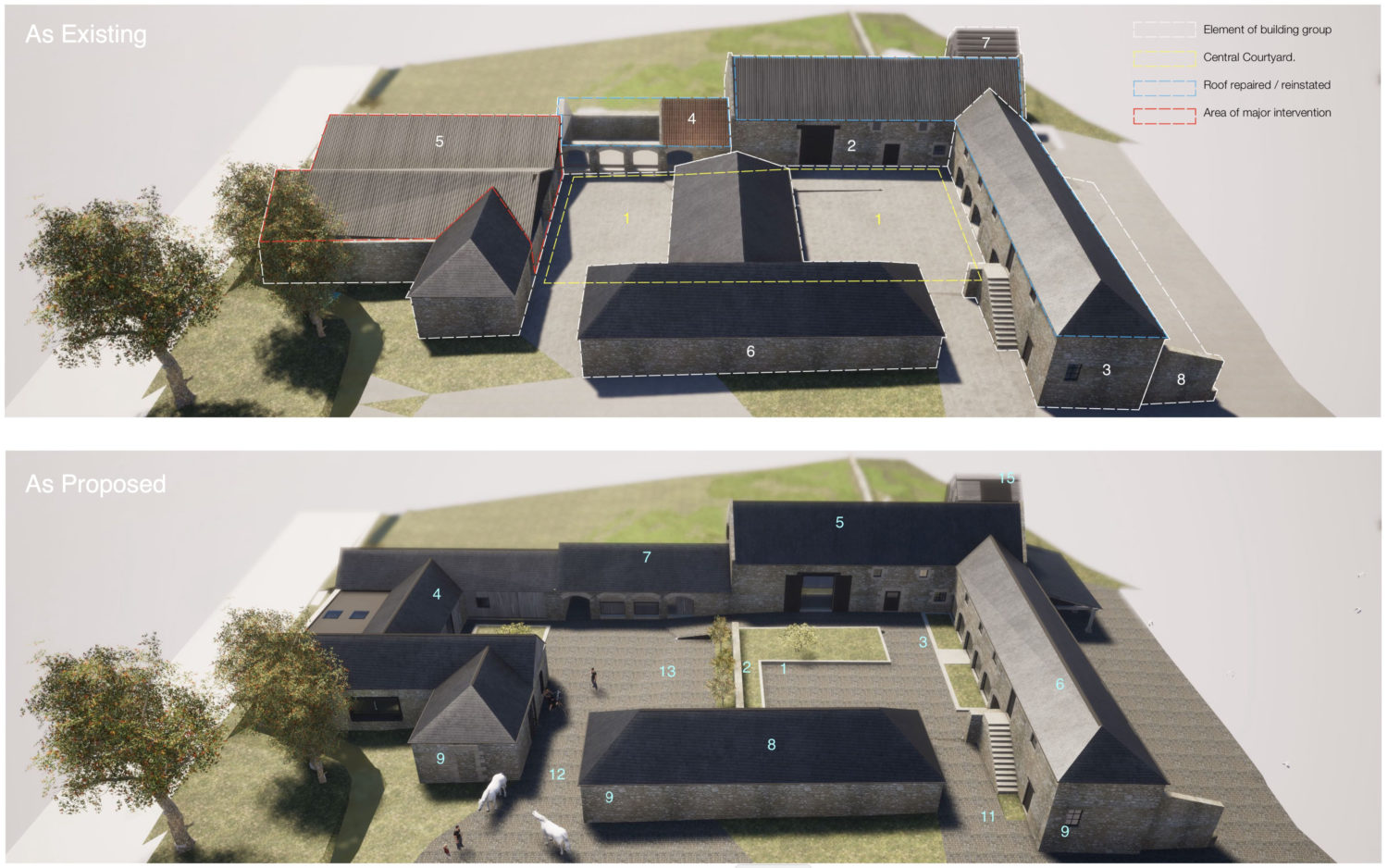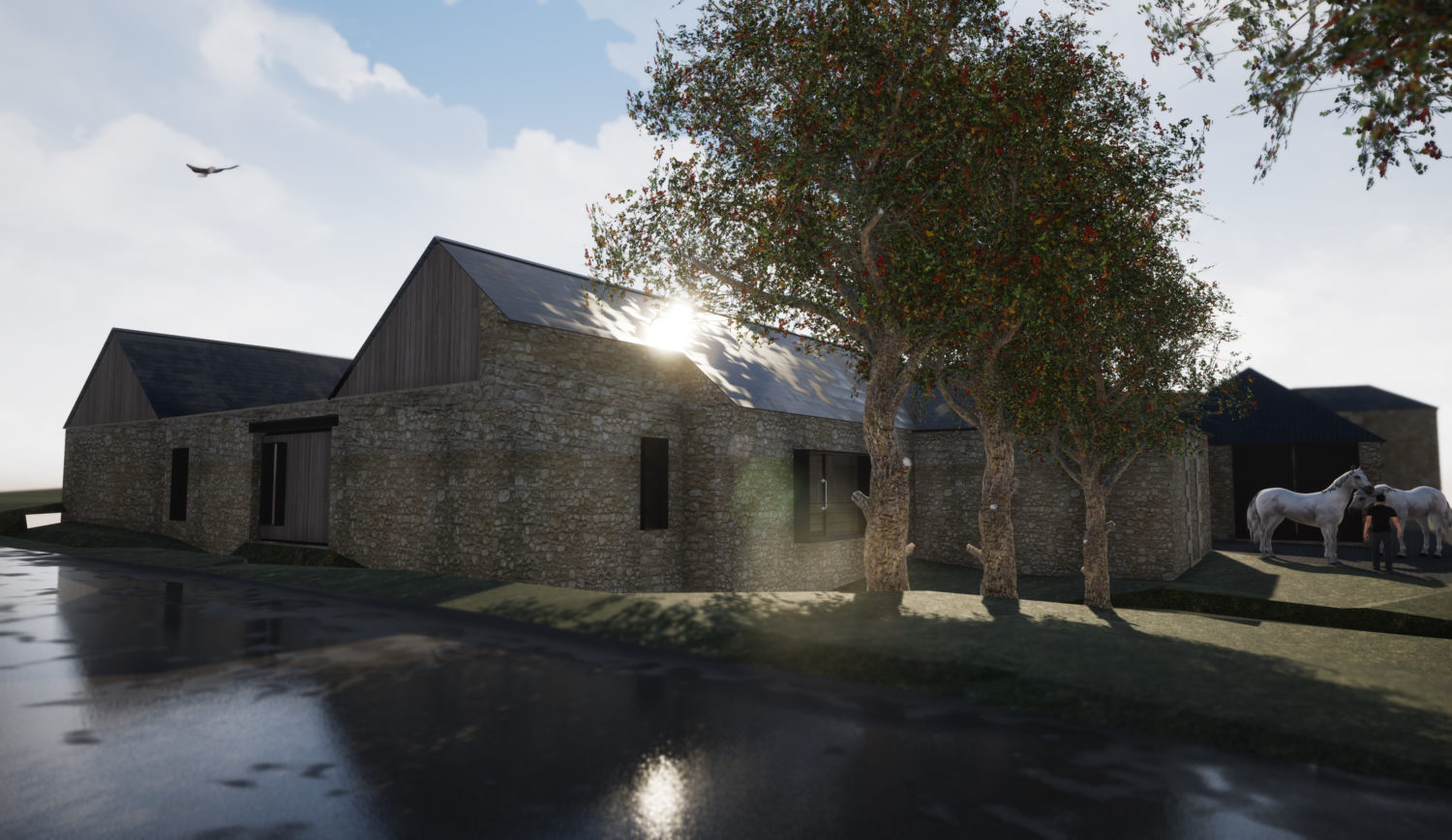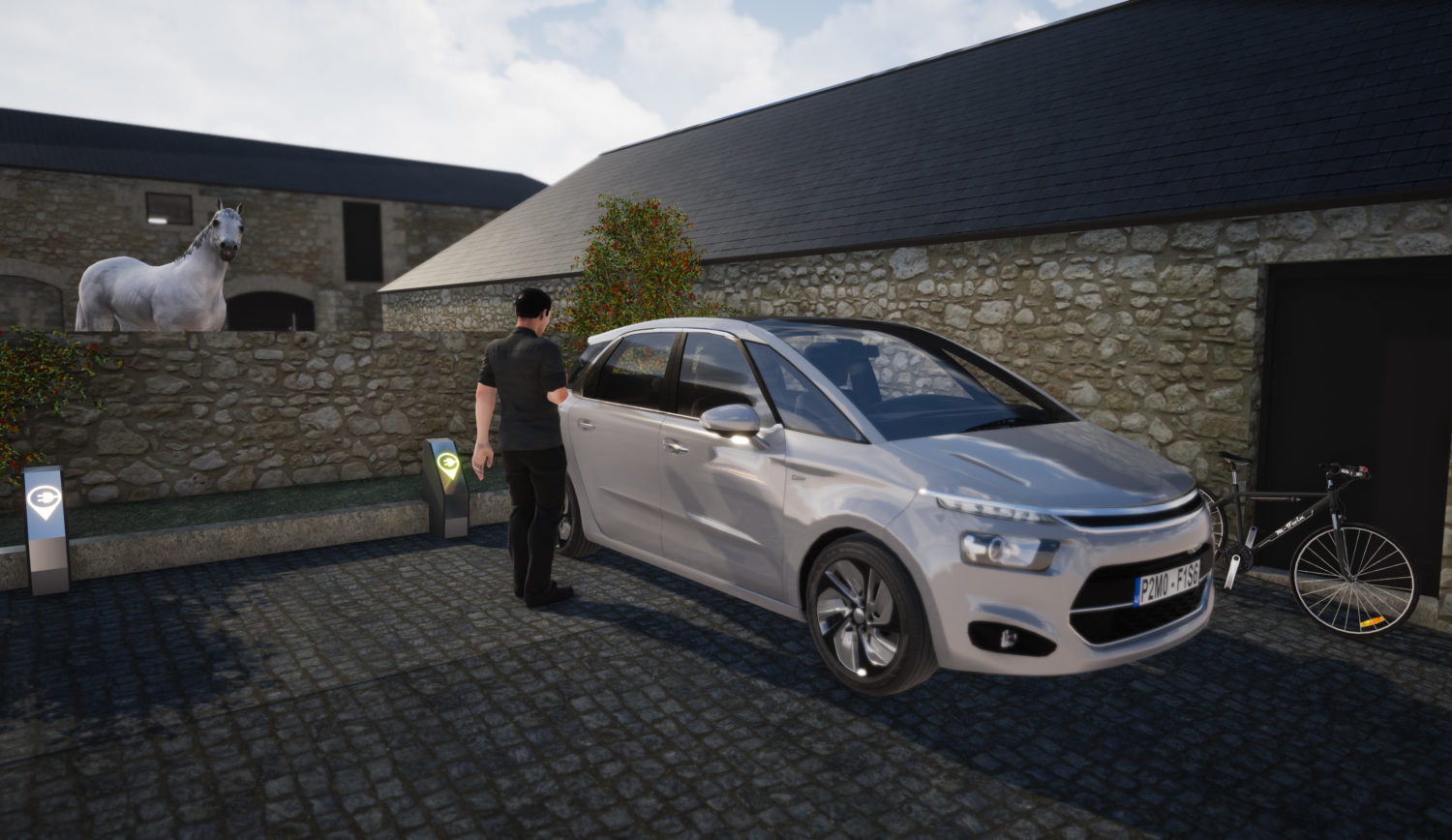Project to develop traditional farm buildings into mixed use residential, holiday accommodation and an observatory.
The clients aim is to provide high quality, sustainable, residential accommodation and leisure facilities through conversion of a range of semi derelict agricultural structures
Issues of; heritage, energy use, agricultural character, materials, ecology, transport, water usage and recycling are integrated into a comprehensive design proposal and business plan, which secures a long term working future for this range of historic buildings as an asset to tourism in rural Northumberland.
Through selective demolition, conversion and reconstruction, the farmstead’s original organisation and building forms are restored, whilst adapted to provide high quality contemporary accommodation in a manner which maintains the essential agricultural character.
In order to safeguard a sustainable future for North Yearle and assist in the transition to a zero carbon economy, the development addresses issues of low energy use and running costs together with utilisation of embodied energy, through reuse of existing building structure and fabric.
Converted buildings will be highly insulated, whilst the heavy thermal mass of original masonry is partly utilised as heat sink to store heat during the warmer day time and slowly radiate this heat during colder evenings. This requires, some elements of masonry to be selectively exposed internally, and that the heating source runs consistently at a low temperature. Insertion of new polished concrete floors with embedded underfloor heating will be fed by ground sourced heat pumps linked via a series of boreholes sunk beneath the site.
The design team are currently exploring potential to provide fresh water for the development through dedicated borehole into the bedrock deep below ground.
Rain water will be collected and stored along with waste water which, after any latent heat is extracted, will be recycled via a series of grey water storage tanks for use in washing and WC’s. The development will host its own mini water treatment centre to process all eventual waste on site.
Electric vehicle charging points will be provided in four locations on site.
An array of roof top solar panels will provide additional on site power generation to assist in running of the ground sourced heat pumps and heat recovery ventilation systems.










